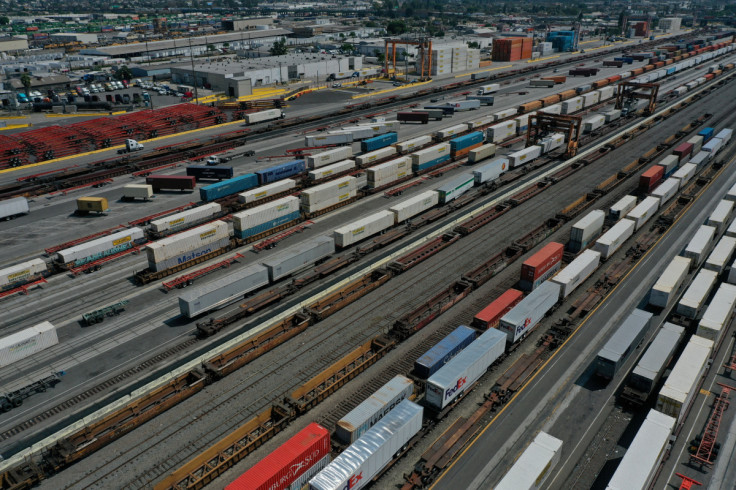Supply Chain Issues To Continue Until 2024: Survey

Over half of logistics managers say they do not expect the global supply chain to return to pre-pandemic levels until 2024, according to survey data collected by CNBC.
Sixty-one percent of logistic managers at large companies and trade groups surveyed by CNBC said their current supply chain is functioning normally.
Managers were asked when they predicted supply chains would return to the pre-2020 norm, and 22% said they were unsure, 19% said it would be 2023, and 30% said 2024. The remainder of those surveyed said 2025 or never again.
The global supply chain faced major setbacks after lockdowns in Wuhan, China, due to the spread of COVID-19 and was further impacted by the Russian invasion of Ukraine. CNBC reports survey respondents are still placing orders six months in advance to ensure arrival.
CNBC surveyed 341 logistics managers between Dec. 12 to Dec. 19. Those surveyed work for companies that are members of the National Retail Federation, the American Apparel and Footwear Association, the Council Of Supply Chain Management Professionals, the Pacific Coast Council, the Agriculture Transportation Coalition and the Coalition Of New England Companies For Trade.
The survey found one of the most significant issues supply chain managers have faced is the global shortage of raw materials, port congestion, and fewer skilled workers available. Where some business sectors are experiencing shortages, others are backlogged with materials, raising the prices of warehouse storage. Abut 400% of those surveyed said they had seen an increase in warehouse prices due to high demand.
Holiday-style sales began in October in part for retailers to remove back stock. Over the holidays, CNBC reported some consumers benefited from the clogged supply chain as prices were slashed to clear inventory.
"Customers are shopping discounts, and we are seeing that in the items we are moving. It's the higher value products like tennis shoes over a lower cost t-shirt," Scott Sureddin, CEO of DHL Supply Chain, told CNBC. "I have never seen inventory levels like this, and after the first of the year, retailers can't continue to sit on this inventory, so the discounts they've been pushing will have to continue."
Increased labor costs and energy prices are putting more inflation strain on suppliers. In addition, those surveyed said there is a severe lack of skilled labor and high levels of employee burnout. Surveyors also found frustration with the Biden administration, with almost 60% of respondents saying the current administration did not understand the global supply chain challenges.
© Copyright IBTimes 2024. All rights reserved.





















